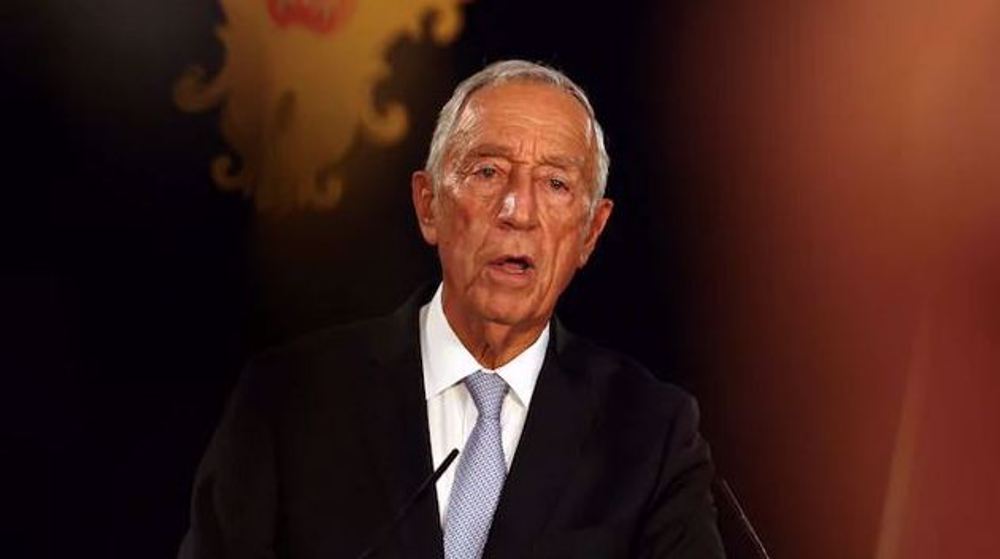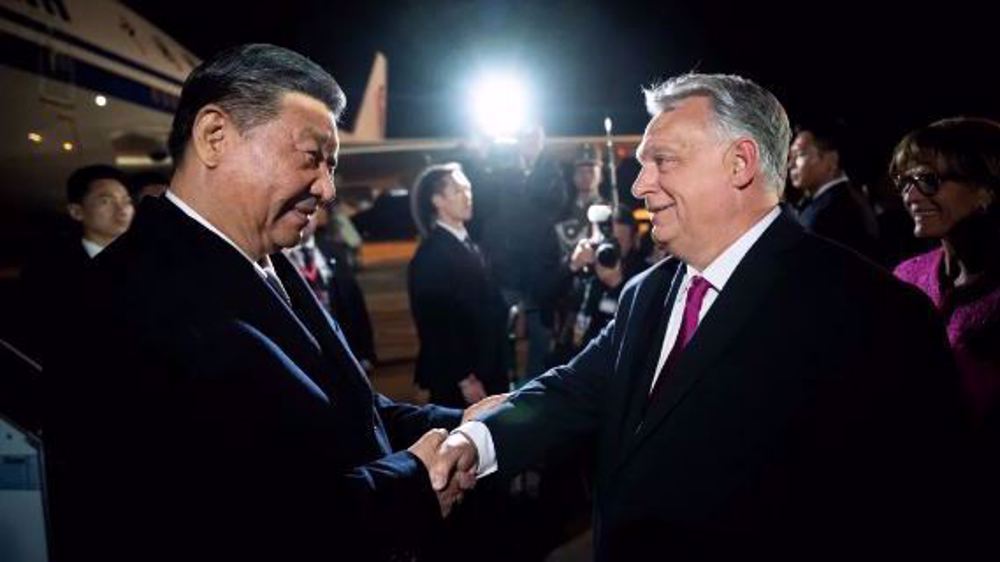Portuguese government rejects paying compensation over colonial-era atrocities
Portugal's government has rejected plans to pay reparations to compensate for its colonial-era slavery legacy, despite previous suggestions from President Marcelo Rebelo de Sousa to financially compensate on the matter.
The government said on Saturday it refuses to initiate any process to pay reparations for atrocities committed during transatlantic slavery and the colonial era, contrary to earlier comments from the Portuguese president.
An estimated 6 million Africans -- mostly youths of both sexes and children -- were abducted during Portugal’s colonial-era empire, and were forcibly transported across the Atlantic by Portuguese ships, then sold into slavery.
For more than five centuries, the Portuguese empire ran slavery operations between Brazil, Angola, Mozambique, Cape Verde, Sao Tome and Principe, East Timor, and some territories in Asia subject to Portuguese rule.
Portugal’s president suggested on Saturday that the present government could use several methods to pay reparations to compensate for the colonial-era slavery legacy left from the 15th to the 19th century.
"We cannot put this under the carpet or in a drawer. We have an obligation to pilot, to lead this process (of reparations)", the president told reporters on Saturday.
He suggested canceling the debt of former colonies and providing financing to them as some of the methods that Portugal could make up for its colonial past.
The government said in a statement sent to the Portuguese news agency Lusa that it refused to pay reparations to its former colonies, insisting that this line of thought had belonged to the previous governments of Portugal.
It said the present government rejects any "process or program of specific actions" for paying reparations; however, it supports efforts to "deepen mutual relations, respect for historical truth and increasingly intense and close cooperation, based on the reconciliation of brotherly peoples."
The Portuguese Empire was the first global empire in history. It spread from the Americas to Africa, the Middle East, India, China, and Japan.
It is the European country with the longest history of slave trade.
Portugal abolished slavery on the Portuguese mainland in 1761. However, it continued the slave trade in other countries and slavery was not completely abolished across all the territories Portugal controlled until 1869.
Portugal's "Carnation Revolution" on April 25, 1974, finally ended the European country's colonial era.
The idea of paying reparations to compensate for European countries' colonial past has gained momentum worldwide, including efforts to form a special court to handle this issue. Activists say that reparations and public policies to combat the inequalities caused by Portugal's past, including systemic racism, are crucial.
The apology has actually been made by De Sousa last year, but not yet officially to the country. "Acknowledging past mistakes and taking responsibility for it is much more important than just apologizing. Apologizing alone is easy," he said.
The idea to provide reparations for people of African descent as a form of justice for the atrocities of slavery has been approved by the UN High Commissioner for Human Rights of the United Nations, Volker Turk.
He urges countries to rectify their past mistakes, however, he does not specify in what way and has left deciding on the matter to the governments involved in slavery.
"The government must show sincere commitment to immediately rectify past mistakes," Turk noted in his closing speech at the United Nations Permanent Forum on Indigenous Issues (UNPFII) in Geneva, Switzerland, on Friday.
In addition to apologizing, financial compensation appears to be the most obvious method for reparation of "past sins", according to the experts. In this regard, African countries and Caribbean territories have voiced support for the creation of an international tribunal to deal with reparations for colonial-era slavery.
Pentagon orders withdrawal of US troops from Niger
Joe Biden's entanglement in Israeli genocide in Gaza has no exit strategy
Iraqi resistance in state of war with Zionist regime: Resistance leader
VIDEO | Press TV's news headlines
VIDEO | Pakistani students demand end to US support for Israel
VIDEO | Iran’s pavilion at Venice Biennale raising awareness about Israeli crimes in Palestine
VIDEO | Yemenis urge army to escalate naval attacks in response to Israeli aggression
VIDEO | Iranians take part in runoff parliamentary vote











 This makes it easy to access the Press TV website
This makes it easy to access the Press TV website